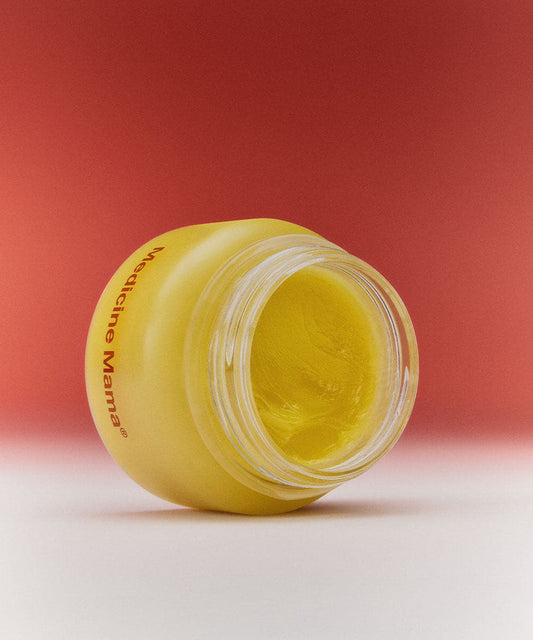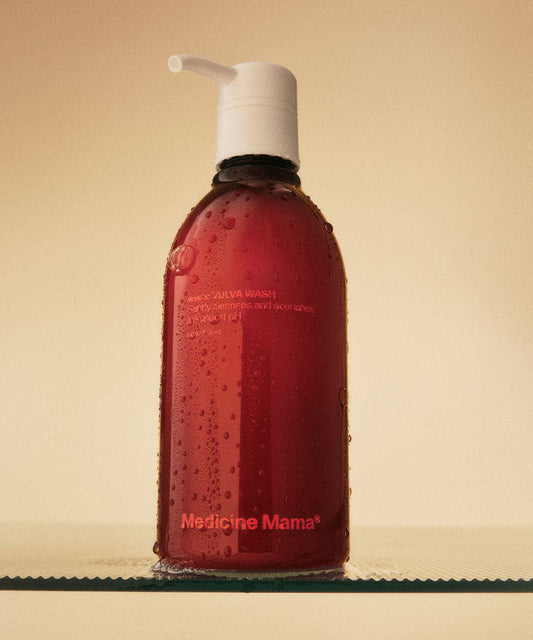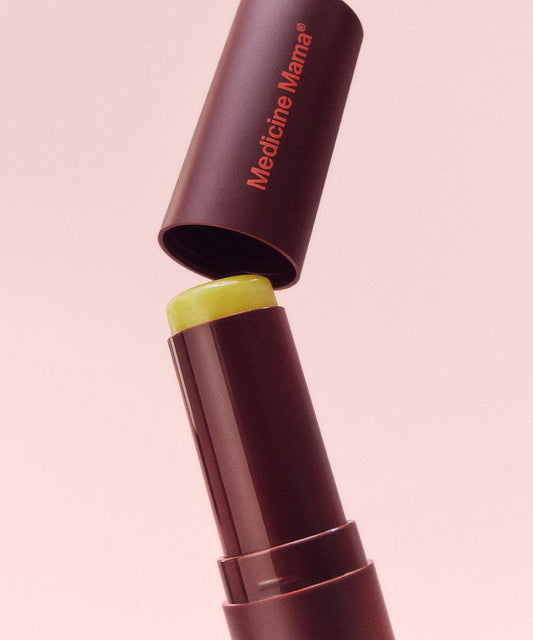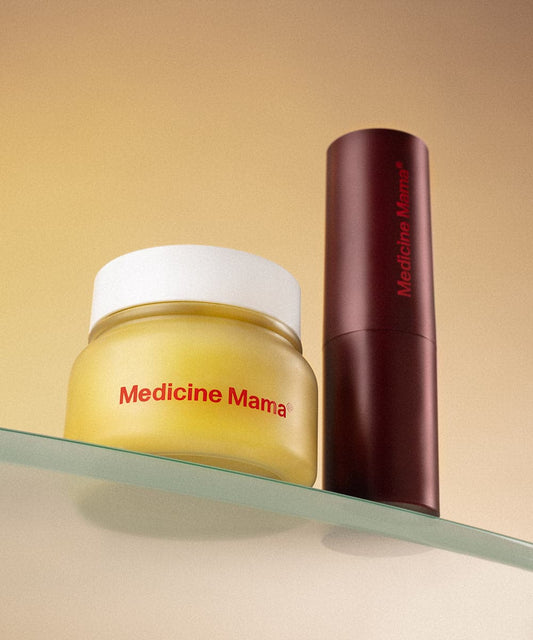Reviewed by | Dr. Clare Bertucio MD
Vaginal dryness is a common issue that many women face. Sometimes it comes and goes, and sometimes it comes to stay. When that happens, it can be incredibly frustrating because of the way it impacts not just your sex life but your comfort as you go about your day.
Vaginal dryness can happen due to changes like menopause, certain medical treatments, or even everyday lifestyle factors, and it can really impact your comfort, intimacy, and confidence. This article dives into what causes vaginal dryness, how you can prevent it, and what to do if you're experiencing it.
We’re here to arm you with some practical information and helpful tips so you can manage this issue effectively and feel more comfortable in your own skin.
What Causes Vaginal Dryness?
Many things can lead to vaginal dryness, and a lot of them are similar to the changes that can lead to unusual vaginal discharge. Suffice to say, any changes to your hormones or body in general can have an impact on your vagina.
Hormonal Changes
Vaginal dryness can come as a result of hormonal changes. Low estrogen levels during menopause, breastfeeding, and after certain cancer treatments such as chemotherapy can diminish the secretions that naturally lubricate the vaginal walls. Similarly, surgeries that affect the ovaries can also result in hormonal imbalances that lead to dryness.
Environmental Factors
Environmental factors and lifestyle choices can also cause dryness. For example, regular exposure to chlorinated water in swimming pools or the habitual use of harsh soaps and lotions on the genital area can strip away natural oils, causing or simply exacerbating dryness.
Endometriosis
If you deal with endometriosis, that can impact dryness as well. Understanding these diverse causes can help in identifying the best treatment options to alleviate symptoms and improve vaginal health.
Whether you think dryness might be the result of something as “expected” as menopausal symptoms or you’re not sure where it’s coming from, it’s always a good idea to speak to a doctor when you notice a serious change like this!
What Problems Can Vaginal Dryness Cause?
Vaginal dryness can lead to a range of concerns far beyond the general irritation it causes or even the interruption in your foreplay routine. When you lack adequate vaginal lubrication, for instance, it can lead to genitourinary syndrome of menopause (GSM). This condition includes several symptoms like urinary incontinence and increased susceptibility to yeast infections due to changes in the vaginal pH.
In postmenopausal women, the thinning of the vaginal wall — a direct result of low estrogen levels — can make pelvic exams more painful and complicate medical assessments. So if you have vaginal dryness, even if you have the hot flashes to go with it to prove that it’s related to menopause, don’t just let it go. Symptoms like vaginal dryness can even ultimately lead to vaginal atrophy, so it’s better to address it sooner rather than later.
That said, it’s not just about your physical health. Sexual health is also a real concern and should be treated as important as any other part of your life! Vaginal dryness can lead to painful intercourse due to too much friction. Without sufficient lubrication, sex can be more than painful. It can also cause micro-tears in the vaginal tissue, leading to bleeding and an increased risk of infections.
Addressing these symptoms with appropriate vaginal moisturizers, hormone therapy, or even simple water-based lubricants can significantly improve your comfort levels, but don’t stop there. Make sure you’re getting to the bottom of what’s causing vaginal dryness, too, or else you might simply be addressing the symptoms rather than the cause.
What Can You Do To Prevent Vaginal Dryness?
If you’ve dealt with vaginal dryness before and weren’t happy with how it impacted your comfort or even just sexual intercourse, it’s understandable that you’d want to do everything you can to prevent it.
Manage Stress
Start by managing simple things like your stress levels. Stress can throw so many things in your body out of whack and lead to all kinds of symptoms, so if you want to prevent issues, developing effective strategies for managing your busy life may help.
Balance Your Diet
Make sure to maintain a balanced diet, too. Drink more water to promote better hydration overall and incorporate foods rich in Omega-3 fatty acids, such as flaxseeds and fish. Focusing on a diet rich in hydration and these key fatty acids can promote better blood flow and hormone production, directly impacting estrogen levels and vaginal lubrication.
Check In With Your OB
It’s also important not to let your gynecology appointments slide! Regular pelvic exams with your healthcare provider can help catch hormonal imbalances early, especially if you’re going through menopause or dealing with fluctuating hormone levels due to conditions like endometriosis or uterine fibroids.
Avoid Douching
Avoid douching at all costs — it doesn’t do anything to help your vaginal well-being and can throw your delicate microbiome out of balance, leading not only to dryness but to urinary tract infections and more. Opt for cotton underwear or other breathable materials around your vulva to preserve the natural moisture of the vulvar and vaginal areas.
What Can You Do To Address Vaginal Dryness Once It Happens?
If vaginal dryness has already set in, besides using over-the-counter lubricants and moisturizers, other options are available that target the underlying causes. Silicone-based lubricants can be a better option if you’re looking for a long night in. When it comes to prolonged sexual activity, these types of lubricants tend to provide longer-lasting lubrication than water-based alternatives.
Suppositories and estrogen creams can offer relief, especially if you’re postmenopausal or know you have significantly low estrogen levels. These treatments can help replenish the vaginal wall, alleviate menopausal symptoms, and improve sexual health.
And as we’ve already touched on, it’s crucial to speak to your ob-gyn. While lube and other tactics can help to keep you feeling comfortable in the short term, you’ll want to get to the bottom of what’s causing your vaginal dryness so you can address it in the long term, too.
Let's Talk About Skincare
Vulvar skin care should be a routine part of your self-care process, just like skincare for your face and body is a natural way to care for yourself. But for some reason, the skin of your vulva is often neglected.
The skin of the vulva is delicate and vulnerable to irritants that can exacerbate conditions like vaginal dryness or yeast infections. It is important to use specialized products designed for vulvar care — free from perfumes, dyes, and harsh chemicals.
These skincare products not only help maintain the natural pH but also support the integrity of the vaginal wall and can prevent UTIs and discomfort. Not sure where to start? There are a couple of main things to keep in mind when it comes to skincare for your vulva when you’re dealing with vaginal dryness.
Watch Out for Irritants
Choosing the right products for vulvar care is critical, particularly for women who experience sensitivity or have conditions like vulvar vestibulitis or genitourinary syndrome of menopause. Many conventional soaps and body washes are formulated with harsh surfactants that can strip the vulva of its natural moisture, leading to irritation and exacerbating vaginal dryness.
Look for products free from harsh chemicals and fragrances, enriched with ingredients like chamomile and vitamin E, which are known for their soothing properties.
Moisturize Your Skin
Maintaining proper hydration and elasticity in your vulvar region is essential, especially for women navigating hormonal fluctuations during menopause or as a side effect of breast cancer treatments.
Look for vulva moisturizers and balms that enhance the health and resilience of the vulvar skin. These moisturizers are particularly beneficial in soothing discomfort from menopausal symptoms, such as vaginal atrophy and dryness. Safely moisturizing your vulva can help to minimize the rubbing and uncomfortable friction that can come along with vaginal dryness.
Ending Your Dry Spell
Tackling vaginal dryness means being proactive about your health and getting to know your body better. There are plenty of ways to ease the discomfort, from making small lifestyle tweaks to seeking specific treatments. It’s a good idea to chat with your healthcare provider to find the right approach for you.
By dealing with vaginal dryness openly and finding the right solutions, you can improve your overall health and boost your confidence. We hope this article helps you take those steps toward feeling great about your well-being.
Disclaimer: The information provided on this blog is for general informational and educational purposes only. All content, including text, images, graphics, and other material, is not intended to be a substitute for professional medical advice, diagnosis, or treatment.
Always seek the guidance of your physician or other qualified health professional with any questions you may have regarding a medical condition, treatment, or wellness program. Never disregard the advice of a medical professional or delay in seeking it because of something you have read on this website.
Sources:
Vaginal Dryness | Cleveland Clinic



